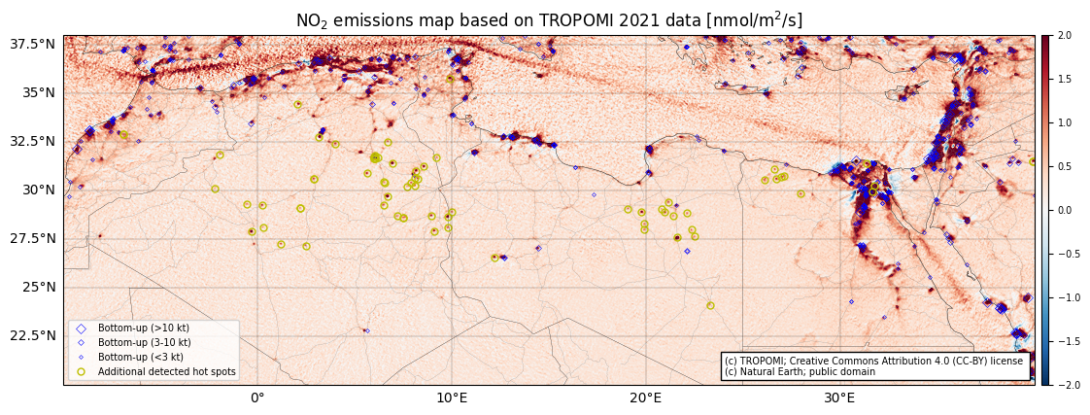Work in CORSO WPs 1 and 2 expand the CoCO2 project's point source dataset to provide additional and important industrial point source data.
The aims of the CORSO project are to provide specific developments as well as guidance for the implementation of the European CO2 emission Monitoring and Verification Support (CO2MVS) capacity within the Coperncius programme.
The importance of high quality prior data was recently stressed by a European Commission policy brief written by its CO2 Taskforce. This includes the recommendation, amongst others, for correct geolocation of large industrial point sources, which are key contributors to fossil-fuel-related CO2 emissions.
To this end, the CORSO project is further developing the global catalogue of CO2 emissions and co-emitted species (i.e. NOx, SOx, CO and CH4) from power plants at their exact geographical location that was constructed in the framework of the CoCO2 project. The improvements performed under CORSO include, amongst others, the addition of emissions from cement and iron/steel plants; two energy-intensive industries that were previously not included. The construction of the database relies on a bottom-up approach, which combines plant-specific information with energy consumption statistics and emission factors.
To verify the location of these emission sources, especially in regions where access to local data is challenging, we produced top-down emission products derived from the TROPOMI instrument on the Copernicus Sentinel-5P satellite (S-5P) and the Korean Geostationary Environment Monitoring Spectrometer (GEMS).
We found overall good agreement between the two independent emission datasets, but also identified some mis-allocations and missing facilities in the bottom-up emission dataset. These were consequently updated in the combined database. The work demonstrates the huge value of integrating bottom-up and top-down emission estimation methodologies to assess and monitor anthropogenic emissions of industrial point sources hotspots .
Further information can be found in Deliverables | CORSO
D1.2 - Improved global point source emissions dataset and
D2.1 - List of CO2, NO2 and CO hot spot locations for the year 2021 identified in satellite observations.
Come and meet us:
The CORSO project team will be at GEIA conference, Abidjan GEIA – 21ème Conférence Internationale 9-11th July 2025.

